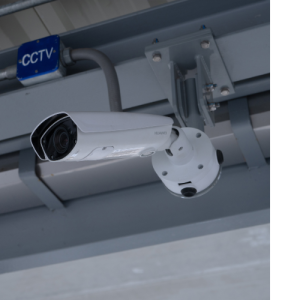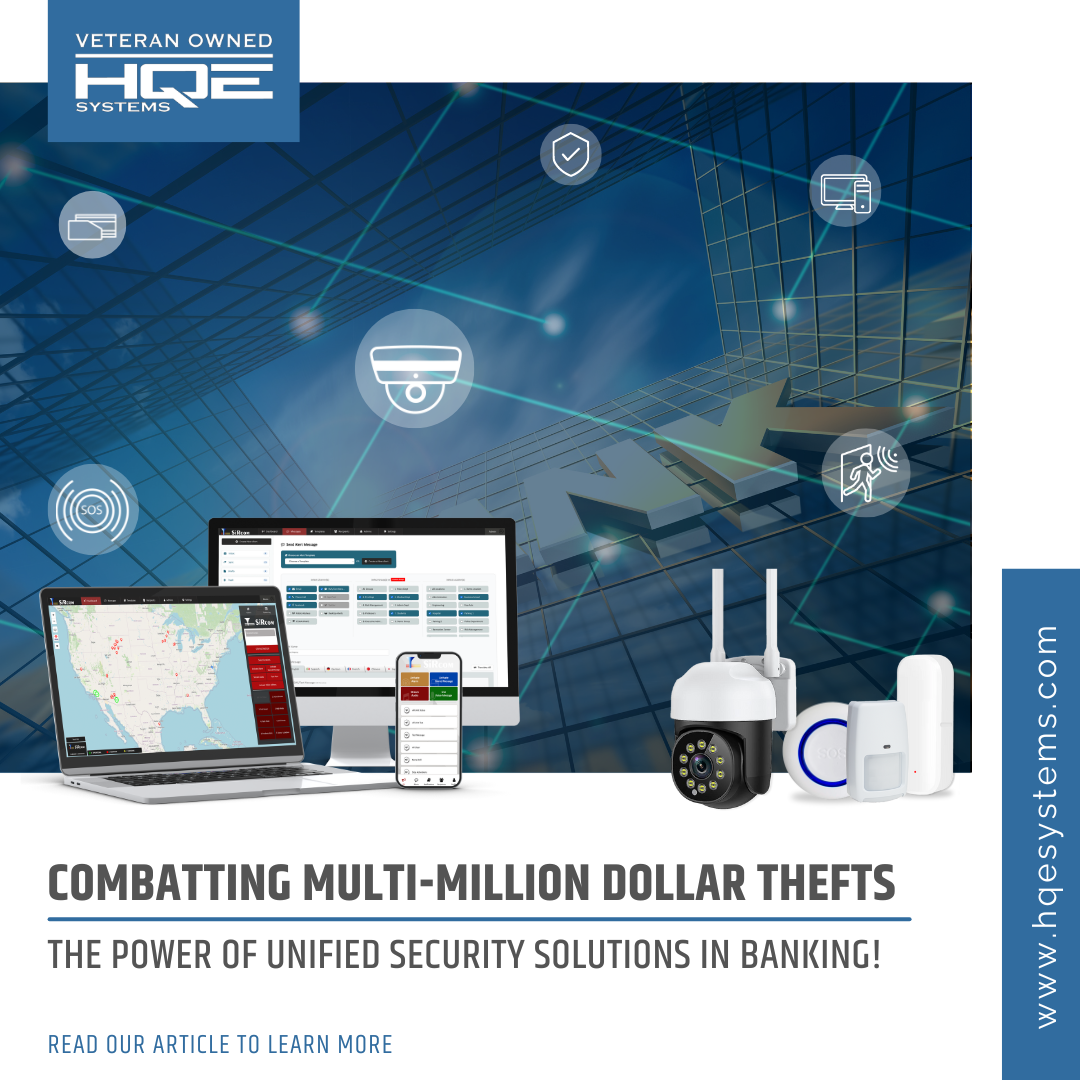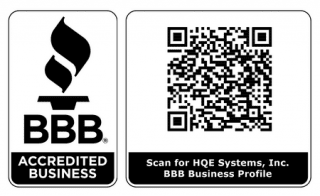Introduction: The Reality of Bank Robberies
Every year, bank robbers steal millions of dollars from banks, credit unions, and related businesses. These criminals often use weapons, posing significant threats to employees and customers. Recent high-profile cases underscore the urgent need for enhanced security measures in the banking industry. For instance, armed robberies have led to significant financial losses and long-term psychological impacts on employees and customers. The increasing sophistication of these criminals, often involving detailed planning and insider information, highlights vulnerabilities in current security systems. As these threats evolve, banks must adopt advanced security measures to protect their assets, ensure customer safety, and maintain trust.
The High-Profile Cases: A Closer Look
In April 2024, a sophisticated burglary at a money storage facility in Sylmar, California, resulted in the theft of $30 million (LA Times). This incident demonstrated the vulnerability of financial institutions to well-planned heists. The criminals used advanced techniques to bypass security measures, indicating the need for more robust and sophisticated security systems.
The Sylmar burglary was meticulously executed, involving multiple perpetrators who managed to disable the security alarms and cameras before making their way into the vault. This incident highlights several critical issues:
meticulously executed, involving multiple perpetrators who managed to disable the security alarms and cameras before making their way into the vault. This incident highlights several critical issues:
- Advanced Planning and Coordination: The burglars demonstrated a high level of coordination and planning, which included understanding the security systems in place and finding ways to circumvent them.
- Insider Knowledge: There is speculation that the criminals had insider information, as the heist was too precise to have been conducted without prior knowledge of the facility’s layout and security protocols.
- Lack of Real-Time Monitoring: The security systems in place were not equipped with real-time monitoring capabilities, which could have alerted authorities immediately upon detecting unusual activity
The aftermath of this heist was not just a financial blow but also a significant hit to the confidence in the security measures of similar institutions. Banks and storage facilities across the country were prompted to re-evaluate their security systems to prevent such breaches in the future.
According to the FBI, bank robbery incidents continue to pose a significant threat to financial institutions across the United States (FBI). These cases often involve armed robbers who use violence or the threat of violence to achieve their goals. One notable incident occurred in 2023, when a group of armed individuals managed to rob a bank in Texas, escaping with over $5 million in cash. The incident underscored several vulnerabilities in the bank’s security measures:
- Physical Security Gaps: The bank’s physical security measures, including outdated CCTV cameras and lack of secure entry points, made it easier for the robbers to gain access.
- Emergency Response Delays: The emergency response was delayed due to the failure of the bank’s alarm system to immediately notify law enforcement.
- Staff Training Deficiencies: Bank staff were not adequately trained to handle such high-stress situations, leading to panic and uncoordinated responses that facilitated the robbers’ escape.
The persistence of such incidents points to the critical need for comprehensive security solutions that can deter, detect, and respond to threats effectively. These high-profile cases are not isolated events but part of a larger trend that has seen an increase in both the number and sophistication of bank robberies.
The impact of these robberies extends beyond the immediate financial loss. Communities suffer long-term consequences, including a pervasive sense of insecurity and fear. Employees who experience these traumatic events may face ongoing psychological effects, impacting their well-being and job performance. Additionally, customers may lose confidence in the bank’s ability to protect their assets, leading to potential loss of business.
extends beyond the immediate financial loss. Communities suffer long-term consequences, including a pervasive sense of insecurity and fear. Employees who experience these traumatic events may face ongoing psychological effects, impacting their well-being and job performance. Additionally, customers may lose confidence in the bank’s ability to protect their assets, leading to potential loss of business.
As criminals become more sophisticated, they are increasingly using technology to their advantage. Cyber-attacks, phishing schemes, and digital fraud are becoming more prevalent, adding another layer of complexity to the security challenges faced by banks. This technological evolution necessitates an equally advanced response from financial institutions, incorporating state-of-the-art security measures to safeguard against both physical and cyber threats.
In addition to dealing with direct threats, banks must also navigate a complex landscape of regulatory requirements. Compliance with these regulations is not just a legal obligation but also a critical component of a comprehensive security strategy. Failure to comply can result in hefty fines and further damage to the institution’s reputation.
These high-profile cases underscore the urgency for banks to adopt robust security measures. The following sections will delve into the specific pain points in banking electronic security and how HQE Systems’ solutions can address these challenges.
Pain Points in Banking Electronic Security
- Data Breaches and Unauthorized Access
Unauthorized access to sensitive customer information is a critical issue. Banks must protect vast amounts of data, and breaches can result in significant financial and reputational damage. Implementing multi-factor authentication and biometric verification can enhance security, ensuring that only authorized personnel have access to sensitive information.
Data breaches can expose confidential customer information, including account details, social security numbers, and personal identification. These breaches not only lead to financial losses but also severely damage a bank’s reputation. The impact extends beyond immediate monetary loss to include long-term customer distrust and potential legal repercussions. Customers expect their banks to protect their personal and financial information rigorously, and any breach undermines this trust.
- Physical Security
 Threats
Threats
Consider the case where armed robbers storm into a bank, threatening employees and customers to gain access to vaults and safes. Such incidents cause immediate financial losses and create a climate of fear. Installing advanced CCTV cameras and access control systems can deter criminals and help in monitoring and controlling entry points.
Physical threats not only pose a danger to the assets stored within the bank but also to the individuals present during such incidents. The psychological impact on employees and customers can lead to long-term stress and anxiety, potentially affecting their overall well-being and productivity. Additionally, the immediate financial loss from stolen funds or assets can be substantial, further exacerbating the bank’s financial stability and reputation.
- Insider Threats
An employee, either maliciously or inadvertently, misuses their access privileges, leading to a security breach. Insider threats pose a significant risk to banks. Employee training programs, behavior monitoring systems, and stringent access controls can help mitigate insider threats. Creating a culture of security awareness is essential.
Insider threats are particularly insidious because they involve individuals who have legitimate access to the bank’s systems and facilities. These threats can range from deliberate fraud and data theft to unintentional mishandling of sensitive information. The consequences can include significant financial losses, legal ramifications, and damage to the bank’s reputation. Additionally, detecting and mitigating insider threats is challenging, as it requires a balance between trust and stringent security measures.
- Compliance with Regulatory Requirements
Banks operate in a highly regulated environment. Non-compliance with data protection and cybersecurity regulations can result in hefty fines and legal repercussions. Automated compliance management systems, regular audits, and continuous monitoring can help banks stay compliant and protect customer data.
Regulatory requirements are designed to protect customer data and ensure the overall security of financial institutions. Non-compliance can lead to severe penalties, legal actions, and significant financial losses. Additionally, failure to comply with regulations can result in the loss of customer trust and damage to the bank’s reputation. Banks must navigate a complex web of local, national, and international regulations, each with its own set of requirements and standards.
- Third-Party Risks

Banks often rely on third-party vendors for various services, introducing additional security risks. Ensuring these vendors adhere to the same security standards is crucial. Thorough vendor risk assessments, contractual security requirements, and ongoing monitoring of third-party activities are essential. Establishing clear security protocols with vendors can mitigate risks.
Third-party vendors can introduce vulnerabilities into a bank’s security framework. These vendors often have access to sensitive information or critical systems, making them a potential weak link. Ensuring that third-party vendors comply with the bank’s security standards is essential. Any breach originating from a third-party vendor can have the same devastating effects as a direct attack on the bank.
- Legacy Systems and Infrastructure
Many banks still operate on legacy systems lacking modern security features. Upgrading these systems is necessary but can be daunting. Gradual system upgrades and implementing security patches can enhance security. Investing in modern infrastructure ensures better protection against threats.
Legacy systems are often outdated and lack the advanced security features necessary to combat modern threats. Upgrading these systems can be a complex and costly process, but it is essential for maintaining robust security. Modern infrastructure not only provides better protection but also enhances operational efficiency and customer experience. The transition from legacy systems to modern infrastructure must be carefully planned to minimize disruptions while maximizing security benefits.
HQE Systems’ Solutions for Enhancing Banking Security
Overview of HQE Systems’ Expertise
HQE Systems specializes in providing advanced electronic security solutions tailored to the banking industry’s needs. Our comprehensive approach addresses various pain points banks face in securing their digital infrastructure.
Integrated Security Platforms
HQE Systems offers integrated security platforms that consolidate various security functions into a unified system. This approach simplifies management and enhances the overall security posture.
Features of Integrated Security Platforms:
Platforms:
- Centralized Monitoring: Our platforms provide a centralized view of all security operations, enabling efficient management and quicker response times. Real-time data from various security devices is collected and displayed on a single interface.
- Real-Time Threat Detection: Advanced algorithms analyze data in real-time to detect potential threats, ensuring immediate action can be taken to mitigate risks.
- Streamlined Incident Response: The integration of various security systems allows for a coordinated response to incidents, reducing the time and effort required to address security breaches.
Benefits:
- Simplified management of security operations.
- Enhanced threat detection capabilities.
- Quicker and more coordinated responses to security incidents.
Advanced Physical Security Solutions
Our solutions incorporate advanced CCTV cameras, access control systems, and intrusion detection systems to ensure the physical security of banking premises.
advanced CCTV cameras, access control systems, and intrusion detection systems to ensure the physical security of banking premises.
Features of Advanced Physical Security Solutions:
- High-Definition Cameras: We provide high-definition cameras with features such as night vision, motion detection, and remote monitoring to ensure comprehensive surveillance.
- Biometric Access Controls: Our access control systems utilize biometric verification (e.g., fingerprints, facial recognition) to ensure that only authorized personnel can access sensitive areas.
- Advanced Intrusion Detection Systems: These systems use sensors and analytics to detect unauthorized entry attempts, ensuring immediate alerts and responses.
Benefits:
- Enhanced surveillance and monitoring capabilities.
- Increased control over access to sensitive areas.
- Quick detection and response to unauthorized entry attempts.
Robust Authentication and Access Control
HQE Systems provides robust authentication and access control solutions to ensure that only authorized individuals can access sensitive information.
Technologies:
- Multi-Factor Authentication (MFA): MFA requires multiple forms of verification (e.g., password, fingerprint, and one-time code) before granting access, significantly enhancing security.
- Biometric Verification: Biometric methods such as fingerprint scans and facial recognition ensure that access is granted based on unique biological traits.
- Role-Based Access Controls (RBAC): RBAC restricts access based on the user’s role within the organization, ensuring that individuals can only access information relevant to their responsibilities.
Benefits:
- Enhanced security through multiple layers of verification.
- Reduced risk of unauthorized access.
- Improved compliance with security standards.
Compliance Management
We offer tools and services to help banks stay compliant with regulatory requirements. Our solutions automate compliance processes and provide continuous monitoring.
Features of Compliance Management Solutions:
Management Solutions:
- Automated Compliance Management: Automated tools monitor compliance with regulations in real-time, providing alerts and reports as needed.
- Regular Audits: Scheduled audits ensure that all systems and processes comply with current regulations and standards.
- Continuous Monitoring: Continuous monitoring systems detect and report compliance issues in real-time, allowing for immediate corrective actions.
Benefits:
- Reduced risk of non-compliance with regulatory requirements.
- Simplified regulatory reporting processes.
- Enhanced data protection and security.
Employee Training and Awareness Programs
HQE Systems offers comprehensive training programs to educate employees on best practices in cybersecurity and how to recognize potential threats.
Programs:
- Security Awareness Training: Regular training sessions that cover the latest cybersecurity threats and best practices for preventing them.
- Phishing Simulation Exercises: Simulated phishing attacks to educate employees on recognizing and responding to phishing attempts.
- Regular Security Updates: Updates on new security threats and measures to counteract them, keeping employees informed and vigilant.
Benefits:
- Enhanced employee awareness of cybersecurity threats.
- Reduced risk of human error leading to security breaches.
- A stronger overall security culture within the organization.
Third-Party Risk Management
Our solutions include thorough vendor risk assessments, contractual security requirements, and ongoing monitoring of third-party activities to mitigate risks associated with external partners.
Features of Third-Party Risk Management:
- Comprehensive Vendor Risk Assessments: Detailed assessments of third-party vendors to identify potential security risks.
- Clear Contractual Security Requirements: Establishing clear security requirements in vendor contracts to ensure adherence to the bank’s security standards.
- Continuous Monitoring: Ongoing monitoring of third-party activities to detect and address security issues in real-time.
Benefits:
- Reduced risks associated with third-party vendors.
- Enhanced accountability of vendors to maintain security standards.
- Improved overall security posture through continuous monitoring.
Modernizing Legacy Systems
HQE Systems assists banks in upgrading legacy systems to modern infrastructure, enhancing security and operational efficiency.
Services:
- System Upgrades: Gradual upgrades of legacy systems to modern, secure infrastructure.
- Security Patches: Regularly updating systems with the latest security patches to protect against new threats.
- Integration with Modern Technologies: Seamlessly integrating new technologies with existing systems to enhance security and operational efficiency.
Benefits:
- Improved security through modern infrastructure.
- Increased operational efficiency and reduced downtime.
- Enhanced protection against emerging threats.
Conclusion
HQE Systems’ comprehensive electronic security solutions address the multifaceted challenges faced by the banking industry. By integrating advanced technologies and providing tailored solutions, we help banks protect their assets, ensure regulatory compliance, and maintain customer trust. Our commitment to continuous innovation and customer-centric approach ensures that banks can confidently navigate the evolving threat landscape and secure their digital and physical environments effectively.
HQE Systems is a certified Veteran Owned Company. For more information about HQE Systems Inc. and its emergency management, electronic security, and integration solutions, please visit www.hqesystems.com.

Contact: David Ditto (Early Warning Systems Subject Matter Expert)
Email: David.Ditto@hqesystems.com
Phone Number: (843) 872-7020
____________________
HQE Systems, Inc. | HQE is a Minority-Owned Service Disabled Veteran Owned Small Business (SDVOSB) providing full solutions for: Mass Notification Systems, Electronic Security Systems, Software Development Services, Contract Support, and Prototyping Services. As a brand-agnostic solutions provider, HQE prides itself in providing the BEST solution for the project. HQE possesses over 30+ factory certifications and reseller licenses to ensure our clients receive the highest quality service at the ideal budget. HQE can provide full design, installation, integrations, upgrades, and long-term maintenance support for any size and scope project.


